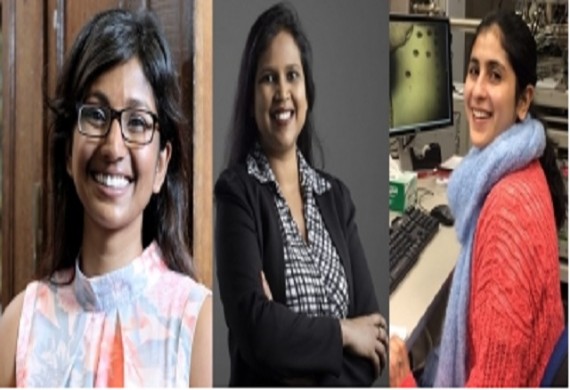
Three Indian-Origin Female Scientists have been named Australia's STEM Superstars
By: WE Staff | Thursday, 1 December 2022
Among the 60 female scientists, technologists, engineers, and mathematicians chosen as Australia's Superstars of STEM, three are of Indian descent. Powered By Three women of Indian ancestry were chosen as Australia's Superstars of STEM from a group of 60 scientists, technologists, engineers, and mathematicians. In 2023 and 2024, Drs. Ana Baburamani, Neelima Kadiyala, and Indrani Mukherjee will complete a two-year programme to gain public attention as STEM authorities. According to a Science & Technology Australia (STA) press release, "The new Superstars highlight the strong diversity of women and non-binary people in Australian science and technology."
STA, a leading organisation in science and technology that represents more than 105,000 scientists and technicians, is a supporter of the Superstars of STEM project. Dr. Ana Baburamani is a biomedical researcher who aims to understand the intricate process of brain development and the factors that lead to brain injury. She currently works at the Department of Defence's Science and Technology Group as a scientific advisor.
She also promotes young researchers, makes science more approachable, and encourages broader engagement in and uptake of STEM vocations in addition to her own research. She participates in BrainSTEM as a volunteer and belongs to the Royal Society of Victoria. Deep time geologist Dr. Indrani Mukherjee of the University of Tasmania said that her "research questions key concepts, and explores links between early Earth evolution, the origin of complex life and formation of precious mineral deposits".
The rock record, a marvellous medium provided by geology, allowed her to journey back in time to 3.5 billion years ago. Neelima Kadiyala, an IT programme manager at Challenger Limited, has more than 15 years of experience implementing major transformation programmes in a variety of sectors, including financial services, government, telecommunications, and fast-moving consumer goods. Kadiyala, who immigrated to Australia in 2003, stated, "I wish to further extend my voluntary services for broader IT community across Australia.
Since the program's debut in 2017, it has chosen 60 women and non-binary STEM professionals and provided them with the education, contacts, and work experience they need to become authorities in their fields and media commentators. Additionally, it aims to dispel gender stereotypes regarding who can work in the fields of science, technology, engineering, and math. " The need to boost diversity in our science, technology, engineering and mathematics sector is urgent," said Australia's Minister for Industry and Science, Ed Husic. "I just know these talented experts and communicators will play their part inspiring Australia's young people, from all backgrounds - into science and technology," Husic added.


.jpg)



